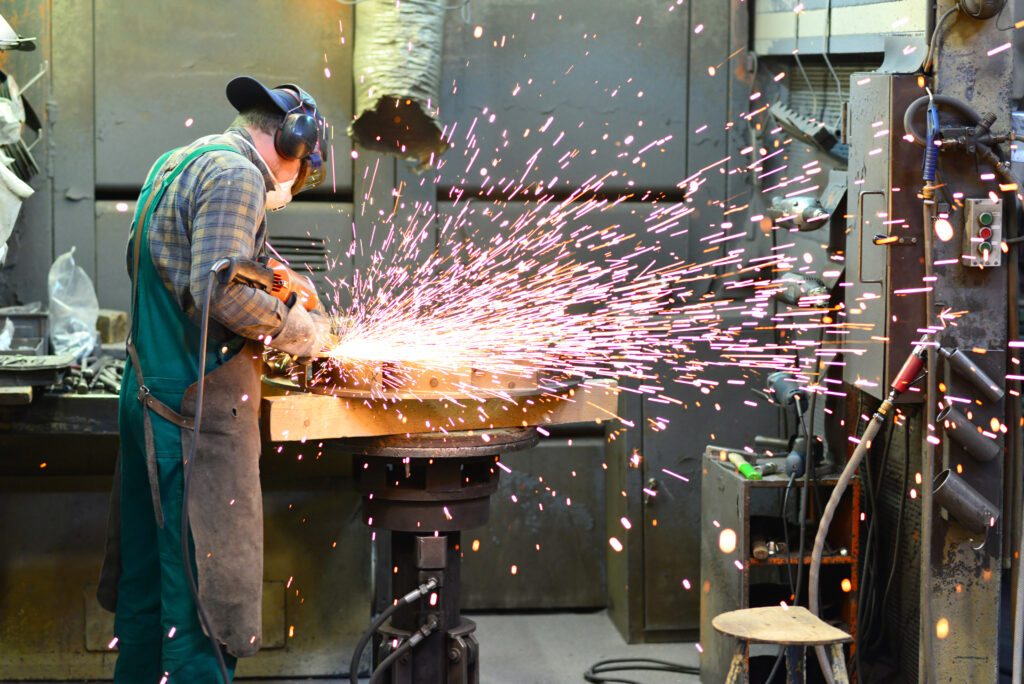What are Foundational Jobs?
Let's strengthen Maine's economy

How Foundational Job Growth Will Lead to a Brighter Future for Maine
Maine’s modern economy faces significant challenges. The state has relatively lower wages and a higher cost of living than ever before. On top of that, Maine is suffering from a shrinking workforce as some individuals retire and younger people move out of state in pursuit of better life opportunities. All of this ties back to the decline of foundational jobs. With fewer foundational jobs, Maine struggles to compete in the national economy and it’s harder for Mainers to provide for their families, encouraging them to move or seek opportunities elsewhere.
Foundational Jobs Explained
Improving Maine’s economy begins with a renewed focus on well-paid, accessible foundational jobs. In a nutshell, foundational jobs are any jobs that add value or bring in money from out of state. This can occur in several key ways. For example, manufacturing jobs transform raw materials into finished goods and create value. Additionally, goods or services sold out-of-state bring money into Maine’s economy, where it is used to pay wages, finance new businesses, and pay for the service and public sectors. Foundational jobs are contrasted with service and public sector jobs that don’t create wealth or bring money into the state and are dependent on foundational sectors for their funding. If the public and service sectors grow and the foundational sectors are stagnant or contract, then the relative burden carried by the foundational sectors to pay for the other two increases. This is what’s happening in Maine and much of the reason Maine is less attractive to investors and businesses than other states. All foundational jobs, regardless of type, contribute to Maine’s economy by:
- Paying for government and emergency services
- Supporting other jobs, such as service industry jobs
- Providing new money to the economy, increasing individual spending power
Unfortunately, goods-producing foundational jobs, such as manufacturing and forestry jobs, have been shrinking steadily, going from 44% of all Maine jobs to just 14%. We’ve lost more than 20,000 of these jobs over the last 15 years. In their place have come lower-paying, service sector jobs such as jobs in healthcare, social assistance, retail, financial services, hospitality, and government. Because these jobs circulate money already in the state and don’t create value, they don’t contribute to a growing economy, nor do they help to produce new jobs or services for Maine’s population. All of these factors have led Maine’s economy to become the slowest growing in the nation since the 2008 recession. Many state officials predict that Maine’s jobs will grow by less than 1% over the next few years compared to a predicted national average of 6% job growth. Even worse, these job gains will be in service sectors rather than foundational sectors.
The Plan to Revitalize Maine’s Economy
Ultimately, the only way to reliably revitalize Maine’s economy for the long term is to focus on growing foundational jobs throughout the state. These jobs will allow Maine’s workers to sell finished goods and high-value services, thereby bringing more money into the state and contributing to overall job growth. But first, Maine needs a plan that is comprehensive and long-term. The plan needs to provide strategies to retain and grow the foundational jobs that are here in Maine today, as well as how we can make the state more competitive for foundational jobs of the future. Please sign up to our email newsletter to stay informed and help us work towards a brighter economic future for Maine.